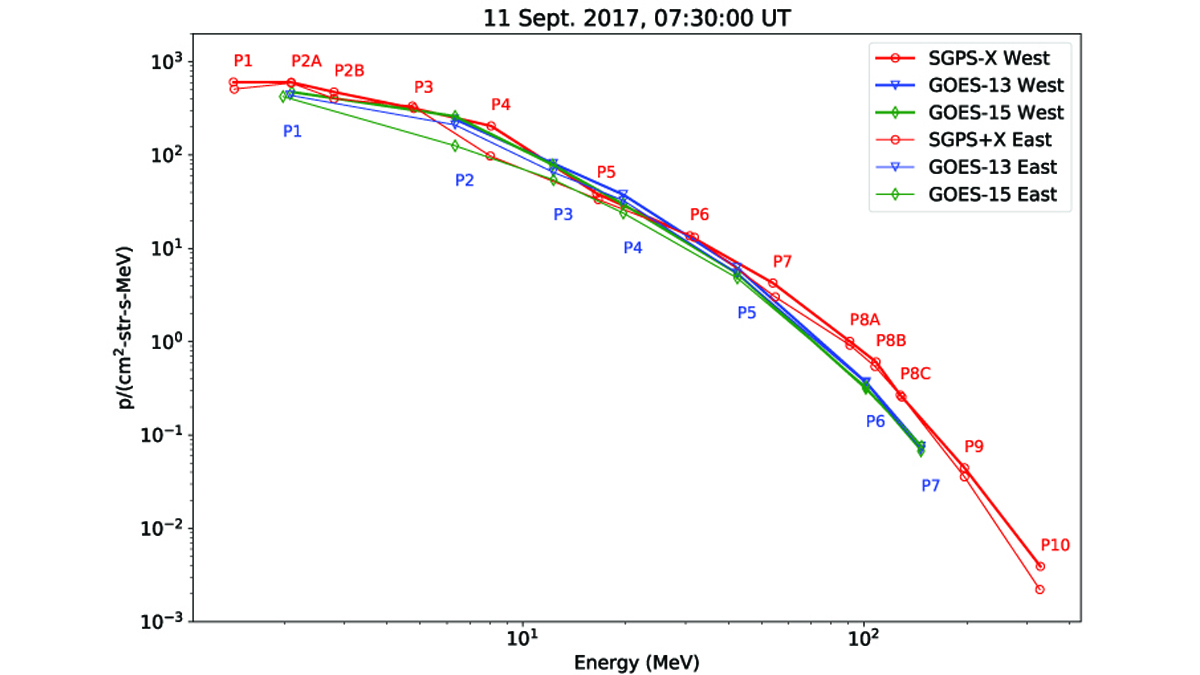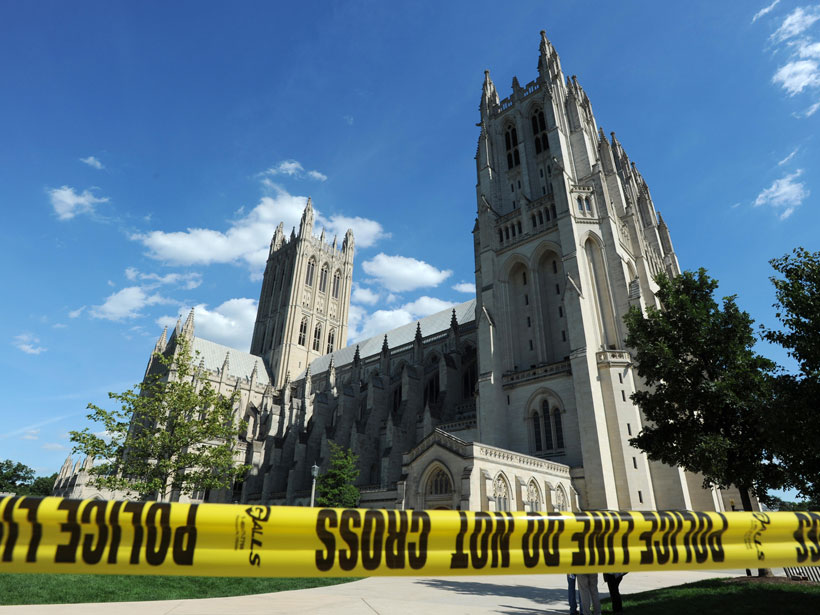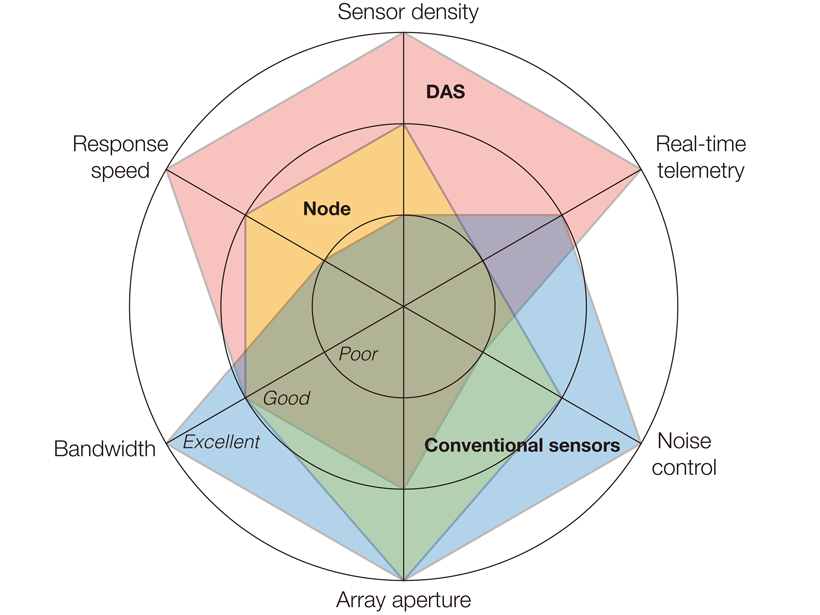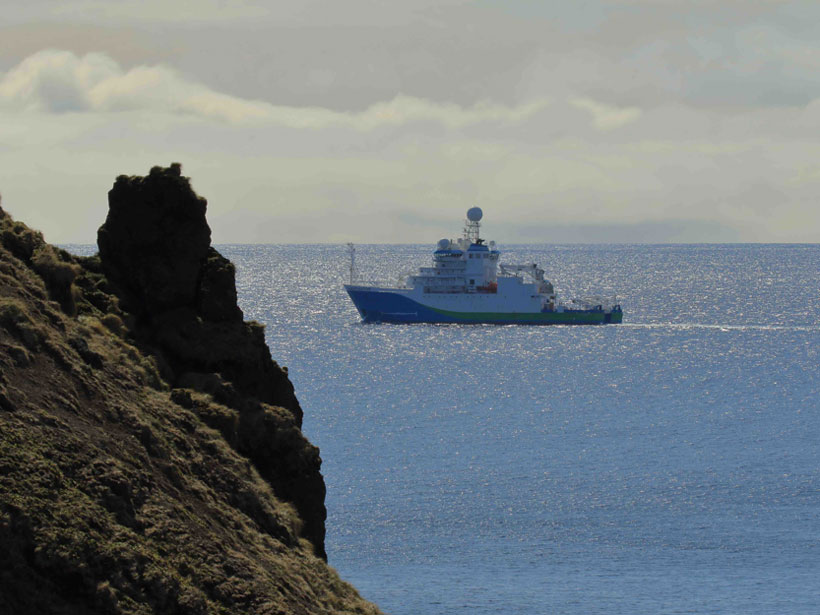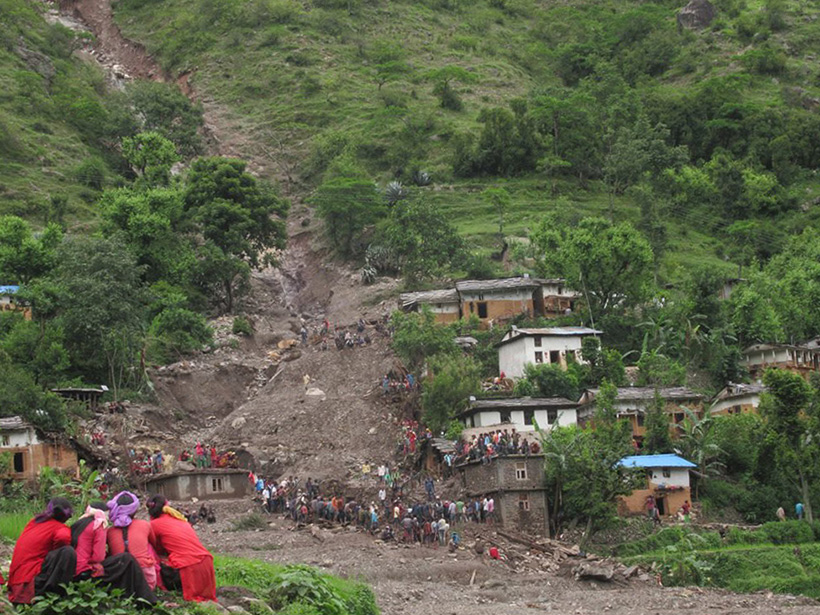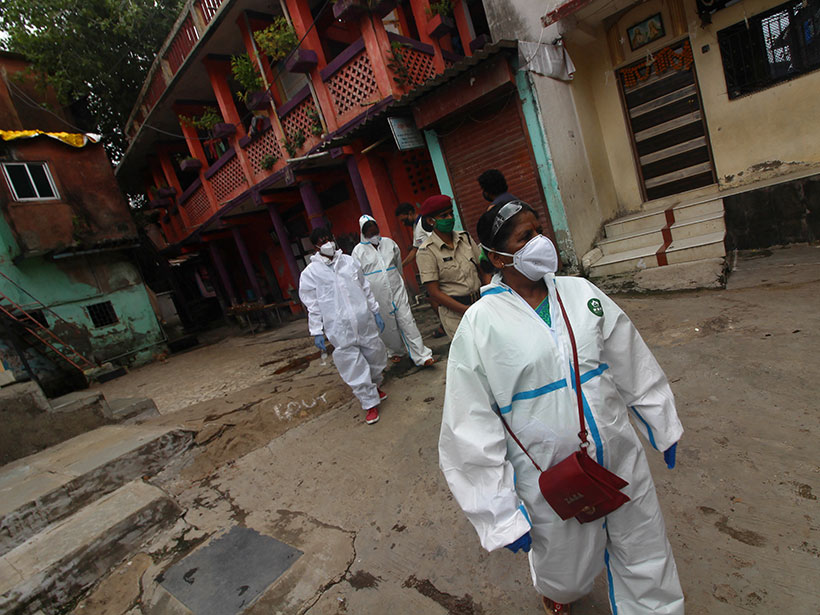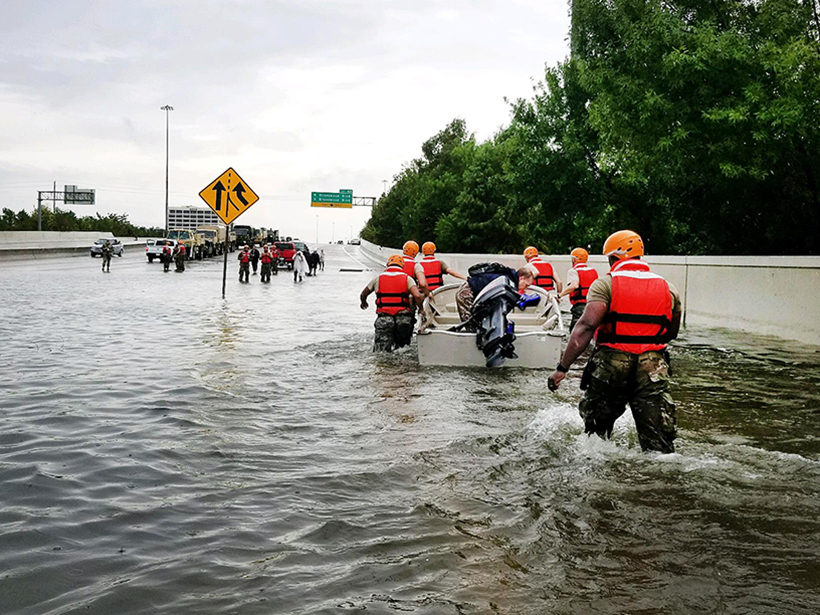NOAA’s weather satellites at geosynchronous orbit also measure space weather and a new series of instruments bring improved capabilities for monitoring and science discovery.
Natural hazards
Tree Rings Reveal a 700-Year Record of Flooding in Bangladesh
Trees tell of a wetter past along the Brahmaputra River and, combined with climate modeling, suggest heightened future flood risks in one of the world’s most densely populated areas.
Ten Years on from the Quake That Shook the Nation’s Capital
A decade of study into the Virginia earthquake that damaged D.C. and reverberated up and down the Atlantic coast in 2011 has shed light on rare, but risk-laden, seismicity in eastern North America.
Aftershocks and Fiber Optics
Internet cables can be transformed into a string of dense seismic sensors, and this approach has now been shown to be highly useful for quickly monitoring seismicity after major earthquakes.
Deploying a Submarine Seismic Observatory in the Furious Fifties
Our crew braved rough Southern Ocean seas, endured pandemic precautions, and adapted plans on the fly for the chance to observe a possible subduction zone in the making below the Macquarie Ridge.
Nepal’s Communities Brace for Multihazard Risks
From its high mountains to its low plains, Nepal faces growing risks from natural hazards. Preparing for these risks requires accurate, locally relevant risk assessments and effective communications.
Building Equity into Hazards Research
In the March issue of Eos, we look at how scientists who study earthquakes, floods, and other hazards are factoring people into their models.
When Natural Disasters Cross the Path of COVID-19
Natural hazards are intersecting with the coronavirus pandemic in India, and researchers will need to model both to inform the public health response.
Uncontrolled Chemical Releases: A Silent, Growing Threat
Uncontrolled releases of household, industrial, and agricultural chemicals during natural disasters pose an underappreciated hazard to humans and ecosystems. Here’s what we can do.
Cascading Down the Mountain
Earthquakes in mountain ranges produce a cascade of geological disturbances and hazards, from enormous landslides to climate change.

